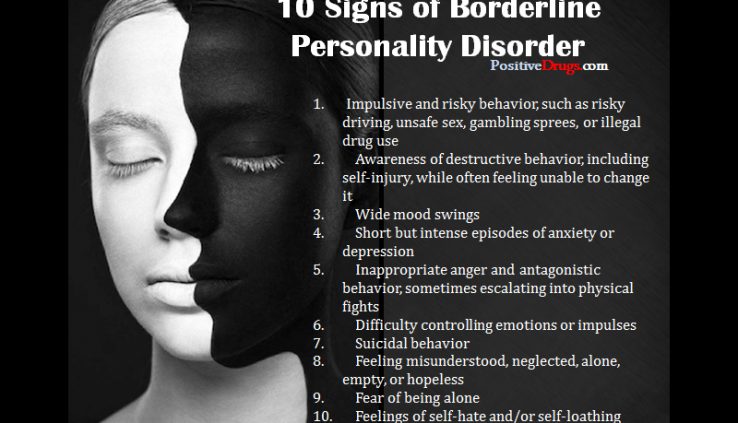…and why it can take so long to recover.
In my clinical experience, I have found that having a relationship with someone who has severe narcissistic or borderline personality disorder often leads to one of the most upsetting relationship experiences a person can have. In short, the closer you are to someone with one of these personalities, the worse the emotional injury. Whether it’s a romantic relationship, a parent and child, or close friends, the experience can take a toll.First, consider the following questions:
- Do men and women with severe narcissism or borderline personality intend to cause such pain?
- Are they evil or do they “get off” on playing mind games and hurting people?
In a word: No.
Men and women with these personalities became this way over time. Often it is the consequence of a parental or other authority figure mistreating them and teaching them distorted lessons about what to expect from people and the world overall. In lay terms, one or more persons in a position of authority and close proximity seriously messed with these individuals’ minds. I have found that individuals with narcissistic and borderline personality typically require years of therapy to undo the distorted programming instilled many years ago.
Narcissism and borderline personality are different in critical ways:
- With narcissism, the individual feels superior consciously, meaning that this is what they tell themselves. The experience of loving a narcissist is confusing. People close to them witness examples of how the narcissist actually must feel extremely insecure, despite how superior and self-loving they act on the surface.
- With borderline personality, the individual fears abandonment in close relationships and cycles through extreme emotions going through everyday life. This experience, too, is confusing for loved ones who must think, “Wait, I’m right here and not going anywhere! How are you so sure I’m out the door?” It feels like those with borderline personality are convinced you’re leaving, as if they have information you don’t. Those close to people with borderline personality often feel taken aback or even frightened by the emotional intensity that comes with their fear of abandonment. Loved ones try to make sense of fear that simply doesn’t make rational sense.
Though narcissism and borderline personality disorder are different, similarities remain. With both, the individual always works hard and feels uncomfortable with vulnerability. These personalities require that a romantic partner serve the interests of the disordered individuals. In other words, it’s really not about you most of the time; it’s about them. If you challenge them or try to hold them accountable, they will lash out and punish you. But most of all, the similarity lies in the depth and expression of anger.
Narcissistic and borderline individuals don’t fight fairly or consistently. These men or women get nasty in a way that you may have never seen before (unless you know someone else who is borderline or narcissistic). When borderline and narcissistic individuals fight, they can use words as bullets, intended to hit you where you’re most vulnerable.
Being very close to someone who is narcissistic or borderline means you’ll be dragged into more high-emotion scenes than you can count, with tears shed, accusations thrown, and a desperate sense of confusion overall. Making the experience more confusing, borderline and narcissistic individuals constantly shift their emotions and argument points, and somehow manage to suggest that the start of the fight—or the overall problem in the relationship—is you.
What a mind-blowing and confusing experience.
Many relationships with someone who is narcissistic or borderline don’t last, for obvious reasons. (Those with borderline or narcissistic personalities can learn to have lasting relationships only if they become acutely aware of their triggers and are willing to discuss their insecurities openly with a partner on an ongoing basis). Once relationships suffer such extreme emotional damage, most won’t survive the blows. Life with someone narcissistic or borderline, someone who hasn’t gotten a sufficient amount of help, is too frustrating for most people to handle. (If it’s a family member who is narcissistic or borderline, it’s a lot harder to walk away.)
If you have you ever loved someone who had either personality type, you know that the injury takes a long time to heal and that the sadness still comes back from time to time. Loving someone narcissistic or borderline involves the accumulation of a lot of unresolved anger and sadness, and these emotions are strong and long-lasting.
With my clients, I have found that the saddest consequence of loving someone with one of these personality types is that you come to question whether the narcissistic or borderline individual ever truly loved you at all. After all, it’s worth considering that someone inflicting so much pain on someone they supposedly “love” may indicate that there never was true, consistent love in the first place. Ultimately, it’s realizations like this which make the recovery process from these relationships so complex.
Is it fair to say that one is a victim of a severe borderline or narcissistic individual? I’m not sure. On the one hand, I believe that it takes two to enact a relationship dynamic, no matter how dysfunctional it becomes. On the other hand, narcissistic and borderline individuals do such a good job of seducing people that there may be a level of manipulation at work much of the time.
How long does it take to heal from a relationship with one of these personalities? It can take years—a few or many—to truly heal the scars. For many loved ones, the experience leaves a trove of upsetting memories impossible to shake over time.

